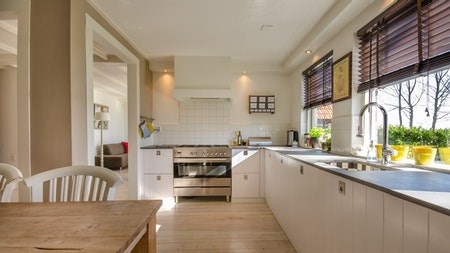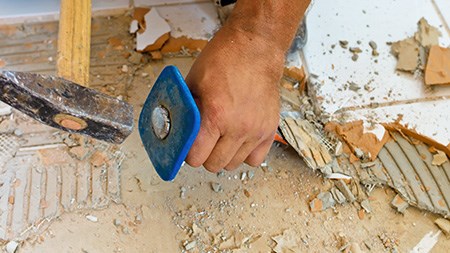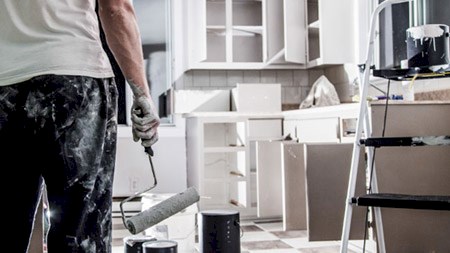The initial Covid-19 lockdown resulted in the closure of dozens of restaurants and cafes, forcing people to cook at home – many for the first time. Even though the lockdown levels have eased somewhat, most people are still isolating to a certain extent and are seeing their kitchens through new eyes.
Well-organised kitchens are now in demand. At the very least, families need a well-thought-out workspace, well-ordered storage spaces, and a comfortable eating area for the whole family.
Get organised
Fortunately, you don’t need a large space to have a functional kitchen. If you organise the available space properly you will be able to whip up marvellous meals with minimum effort.
For a start, you need to take stock and see what you have in your kitchen.
Take everything out of the kitchen cabinets and drawers – crockery and cutlery, appliances, equipment, herbs and spices, tinned food, and other supplies.
Look critically at each item. Decide whether or not you need it. Once you’ve gone through your items, you should have three piles:
Items to keep.
Items to throw away.
Items to donate.
With everything out of your cabinets and drawers, this is the ideal time to give all surfaces a thorough clean-up before putting items back where you want them to be.
Work areas
Before you start to put things back, assess your entire kitchen and divide cabinets and drawers into working areas.
Area 1 – close to dishwasher and kitchen sink: Crockery and cutlery including plates, bowls, glassware, knives, and forks. Plate racks and mug trees make items more easily accessible.
Area 2 - close to oven and hob. Pots, pans, dishes, cutting boards, spatulas, wooden spoons, measuring cups, and spoons, mixing bowls and other baking equipment.
Area 3 – pantry items: Dry goods, spices, cereals, and larger kitchen gadgets.
Area 4 - storage: Plastic containers, cling wrap, storage bags, tin foil, wax wrap.
Area 5 - coffee and tea, cold drinks: Coffee cups, coffee and tea accessories, coffee and teapots, everyday glasses.
Area 6 - under the sink: Cleaning supplies, extra hand soap, refuse bags, recycling bags.
Repack
When you repack your cabinets try to keep the items you use most at eye level and those you use less often higher up or lower down. If you can’t easily see or access something, you will be less likely to use it.
Put cereals, baking goods, pasta, and rice into clear containers. You’ll have more room, they will be kept better and you’ll be able to see where everything is.
Labels should face forward with new items at the back so that you can use them in order with less going to waste.
In your fridge, group similar items together and determine the best layout for your shelving inside.
Organising tips
Nifty storage ideas that won’t take up more precious space:
Pull-out units are ideal for deep cabinets – especially under the sink or other low spaces.
Install a hanging rack for pots and pans to free up cupboard space, especially if you don’t have pot drawers under the hob.
Use free wall space to mount magnetic knife holders, fresh hanging herbs, and hooks for hanging odds and ends.
Mount a wall rack for spices.
Use drawer organisers and dividers to keep cutlery and tableware organised.
Use standing dividers for items like baking sheets and cutting boards
Install a corkboard on the inside of your cabinet doors to hang small items.
Use a turntable for oils, vinegar, and sauces.
A stepped organiser is great for tins and spices.
Put small packets and sweets in baskets, so that they don’t get lost in the cupboard.
Whatever changes you choose to make, keep in mind that your main goal is to enjoy being in your kitchen.



